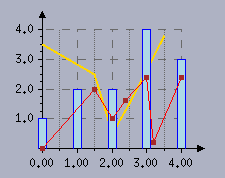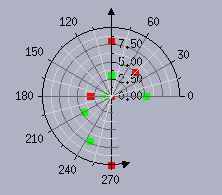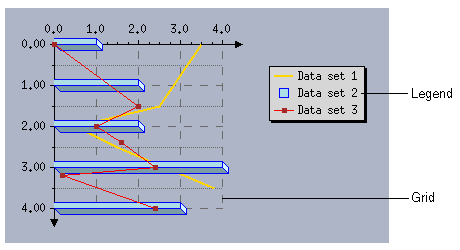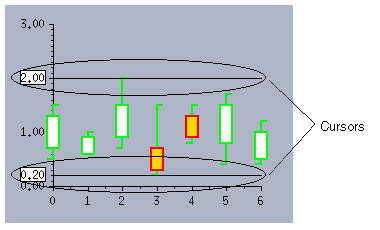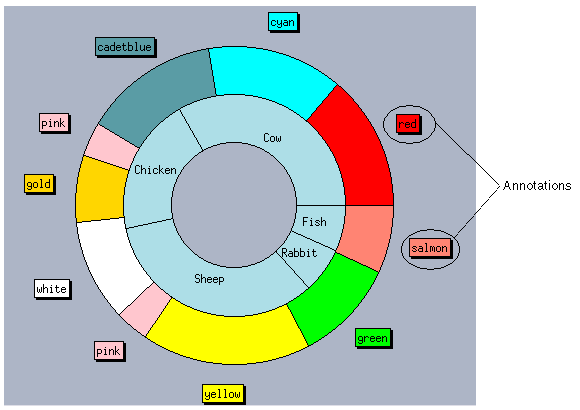What is a Chart?
A chart represents data graphically in different forms (markers, lines, bars, and so on) with scales that are added to indicate the values of the displayed data. We distinguish two kinds of charts:
 Cartesian charts
Cartesian charts represent data in a standard way. The data is expressed using a Cartesian system of coordinates (
x,
y). The
x- and
y-coordinates are plotted along the abscissa and ordinate scales, respectively. The scales are
rectangular and are displayed orthogonally.
Figure 5.1 A Cartesian Chart
 Polar charts
Polar charts represent data in a circular way. The data is expressed using a polar system of coordinates (
θ,
ρ). The abscissa values
θ are plotted along a circular scale. The ordinate scale, along which the
ρ-coordinates are plotted, is
rectangular and is displayed radially.
Figure 5.2 A Polar Chart
In addition, other elements can be added to a chart to aid in the understanding of the displayed data:

Legends that explain the displayed data (see
Figure 5.3)

Grids to help you locate the data points on a chart (see
Figure 5.3)

Cursors that show the values of a given data point on the scales (see
Figure 5.4)

Annotation linked to a given data point (see
Figure 5.5)
Figure 5.3 A Grid and a Legend in a Cartesian Chart
Figure 5.4 Cursors in a Cartesian Chart
Figure 5.5 Annotations on a Pie Chart
Version 5.5.1
Copyright © 2012, Rogue Wave Software, Inc. All Rights Reserved.
